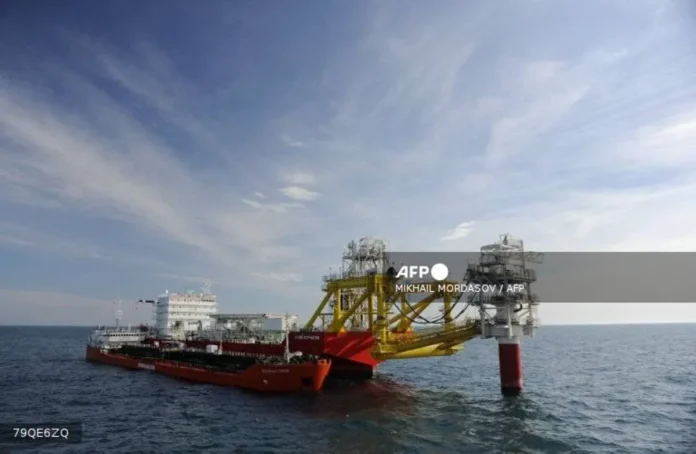WARSAW: The United States has imposed sanctions on Russia’s two largest oil producers, Rosneft and Lukoil, marking the first such measures since President Donald Trump returned to office.
The European Union simultaneously announced a complete ban on Russian liquefied natural gas imports by the end of 2026.
US sanctions freeze all Rosneft and Lukoil assets in the United States and prohibit American companies from conducting business with them.
Both companies represent major contributors to Russian state finances, which the Kremlin uses to fund its war against Ukraine.
Together they account for 55% of Russia’s oil output according to industry analysts, with both firms also producing significant quantities of gas.
The Russian government maintains a majority stake in Rosneft, making it particularly vulnerable to Western financial pressure.
Kyiv has launched drone strikes on Rosneft and Lukoil refineries throughout the conflict, causing output declines and petrol price spikes.
The EU introduced its new restrictions as part of the bloc’s 19th sanctions package since Russia’s 2022 invasion of Ukraine.
These measures include action against Moscow’s shadow oil tanker fleet, which the EU estimates now comprises up to 1,400 vessels.
The 27-nation bloc has already blacklisted hundreds of tankers, but Russia continues to deploy additional depleted vessels.
The EU has dramatically reduced its dependence on Russian natural gas since the invasion began.
Russian gas now constitutes only 7% of EU imports, down from 38% before the war according to AFP calculations based on Bruegel institute data.
The United States placed both Lukoil and Rosneft on its SDN list of specially designated nationals.
Companies engaging with these Russian entities risk secondary sanctions that would deny them access to US banks, traders, shippers and insurers.
Russian energy expert Alexei Gromov described the sanctions as a significant blow that will create difficulties for Russian oil supplies to India.
Gromov noted the sanctions aim to prevent Russia and India from trading in dollars, with New Delhi being a key importer of Russian oil.
The measures are unlikely to affect Russia’s trade with China, as Moscow and Beijing already conduct business in their national currencies.
Trump initially attempted to foster ties with Russia but grew increasingly frustrated with Moscow’s refusal to agree to a ceasefire.
These latest sanctions represent a stronger approach than that of his Democratic predecessor Joe Biden, who targeted smaller producers instead of Russia’s oil majors.
Jorge Leon from Rystad Energy predicted the curbs will trigger less official buying of Russian crude and increased shadow fleet trade.
Capital Economics analysts called the sanctions a major escalation that could flip the global oil market into deficit next year.
Elisabeth Braw from the Atlantic Council cautioned that many strong economies can step in to buy whatever products are being sanctioned.
Russian President Vladimir Putin acknowledged the sanctions as serious but insufficient to strongly impact Russia’s already adapted economy.
Ukraine’s President Volodymyr Zelensky described the sanctions as a clear signal for Moscow to end the war. – AFP
ALSO READ: UK sanctions Russia’s Lukoil and Rosneft to cut war funding







